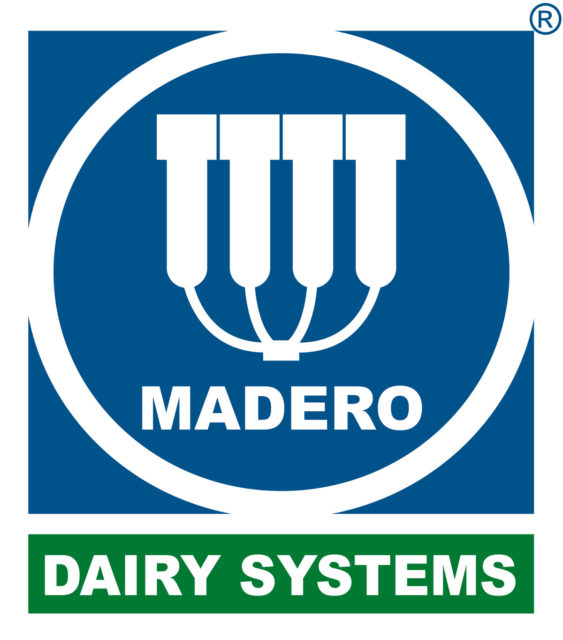Which mechanic are you? • You watch the calendar almost as religiously as the Super Bowl countdown – just XXX days before you haul that equipment to the field again, and by darn, you’re not about to get it ready until you absolutely have to.
• You take older equipment into the field with your fingers crossed, praying it will hold together through the season without a serious breakdown.
• You’d rather spend your time going to the kids’ activities and sports (and might even consider shopping with the wife if it meant not fixing equipment) than spend your time in the shop with your nose stuck in an oil pan.
• Your usual reaction to a strange noise coming from a piece of equipment is either “turn the radio up” or “just shoot it.”
Of course, there are others of you who know exactly what machine, make and model I’m referring to if I simply clue you, “Disconnect the connecting rods; remove the four bearings; and pull the plunger out the back.” You likely even know what the issue is. If this describes you, you can totally quit reading right now and go back to your casual reading of operator’s manuals.
Let me point out that if any of the first descriptions come a little too close for comfort when describing your mechanical abilities and interest, then you probably ought to consider a dealer winter maintenance program.
Remember that flyer you got in the mail a month or two ago, offering you winter maintenance specials? That’s right; dig it out of the magazine stack and take another look. Granted, some producers are mechanically inclined and even find some shop time therapeutic. But other producers (namely you) would rather cut off their little finger than try to figure out where the metal flakes and rattle are coming from in the transmission.
Even if you like to tinker at ag mechanics, there are good reasons for using a dealership winter maintenance program:
- You know the older equipment well, but the newer equipment isn’t as familiar.
- Planned maintenance is considerably cheaper than ad hoc repairs.
- Many dealers offer an extra six-month warranty on serviced parts, since the equipment will likely sit six months before being used in the field again.
- Some dealers offer discounts on parts if used as part of a regular maintenance check.
- Some dealers include free or reduced trucking to bring the equipment to the dealership.
- Newer precision equipment may need firmware updates on displays.
- Some OEMs offer special finance options on winter-serviced equipment.
- A service technician doesn’t work on just your baler (for example); he works on dozens of the same model. He’ll know where the common wear points and problem spots might be on your equipment before you do.
As we enter a third year of lower commodity prices, future cost planning becomes increasingly important. Fixed service cost schemes can even out repair expenses and can even reduce costs.
There is a tendency in agriculture to “do more myself,” and that’s generally sound advice – generally. It’s been said, “It’s hard to save your way to prosperity.” Simply put, there is a point of diminishing returns on cost-saving practices. If you spend six hours on a project that might have taken a professional mechanic 45 minutes, the question really comes down to what else you might have been able to do during those six hours to generate revenue or save other costs. Don’t spend time fixing something just because you can. Weigh the alternatives to determine what is truly cost-effective. You might be money ahead to finish building a machine shed to get your equipment out of the weather.
Inspection services
Rather than a full-blown service, many dealerships offer on-farm inspection services. A trained professional will look over the equipment and give you an estimate of repair costs. Different levels of inspections are offered, from quick looks to extensive three-hour inspections. You pay them to figure out what’s wrong, and then you can fix it yourself if you’re so inclined. Likely the technician will find things you might have missed.
One producer says, “Have them come to your shop and inspect it, and then you do the fixing. We have a fairly new combine and usually get it inspected yearly. He has caught a lot of things that I would never have caught, like the air condition compressor bearing. It was completely out on our 9670. If we hadn’t replaced it, it would have cost us a day or two in the heat of combining to get it fixed. Some of the things they wrote down can wait another year or two, so I like making the final call myself.”
Another producer from Ontario, Canada, says, “We have the [dealer] mechanic do the winter check-over on our combine, in our shop; then we do the repairs. It’s the only thing we get inspected. We feel he’s caught enough issues to pay for the inspection every year.”
I’m on your side
I’m not trying to sell you anything – I have no “skin in the game” (as they say), no stake in your decision. There aren’t any equipment dealerships out there paying me or even encouraging me to write this article. But I’ve seen scheduled maintenance work and be cost-effective for all parties.
In a former life, I worked at a sign manufacturing company. They offered service contracts for customers’ signs and exterior lighting, whereby the customers’ signs were checked on a regular basis and any repairs were made (burnt-out bulbs replaced, neon recharged, message centers updated, etc.). I also ran the numbers at the end of the contracts to see how the sign company faired financially on the contracts and how the customers came out.
From the sign company’s side of things, the bonuses for them was consistent work for the service crew and a regular payment schedule that kept the cash flow steady. From the customer’s standpoint, they paid no more and often paid less than what it would have cost them to have a service crew respond to any outages or problems on an as-needed basis. And the customer’s problems were fixed in a much more timely fashion. It was mutually beneficial to both parties.
I know this scenario is not exactly the same as dealing with farm equipment or winter service specials, but the principles are the same.
There will always be those folks who look at a bill for equipment dealership repairs and say, “I’m not paying $100 an hour on labor for somebody else to fix my equipment.” All I’m saying is don’t just look at one figure. That $100 can be a bargain if it prevented even one breakdown for one hour during planting or harvesting, or if it meant you got to watch your kid at one basketball game. Some things you can’t put a price on. PD
PHOTO: Staff photo.





